As we explore the appliance retail industry, we are witnessing a revolution that is reshaping the market. Consumer trends are changing the way we purchase appliances, and it is crucial that we stay up-to-date.
From smart home integration to sustainable and energy-efficient options, consumers are demanding products that align with their values and enhance their lives.
The rise of direct-to-consumer brands and personalized shopping experiences have further empowered consumers, giving them more control over their purchasing decisions.
Moreover, virtual reality is revolutionizing the way we experience appliance retail, allowing us to visualize products in our own homes before making a purchase.

Additionally, subscription-based appliance services offer convenience and flexibility.
Join us as we explore these exciting trends and unlock the future of appliance retail.
Key Takeaways
- Increasing demand for smart home integration and energy-efficient appliances
- Implementation of personalized shopping experiences to increase revenue and customer satisfaction
- Rise of DTC brands reshaping the appliance retail industry
- Utilization of virtual reality, interactive product demonstrations, and subscription-based appliance services to enhance the overall customer experience and revolutionize the way customers shop for appliances.
Smart Home Integration
One of the top consumer trends in appliance retail is the increasing demand for smart home integration. With the rise of voice control and connected devices, consumers are looking for appliances that seamlessly integrate into their smart home systems. According to a recent survey, 68% of consumers believe that having voice control capabilities in their appliances is important. This data highlights the growing desire for convenience and automation in the home.
Smart home integration allows consumers to control their appliances remotely, using voice commands or smartphone apps. This means that they can preheat their oven on their way home from work, or adjust the temperature of their refrigerator while at the grocery store. It’s all about making life easier and more efficient.
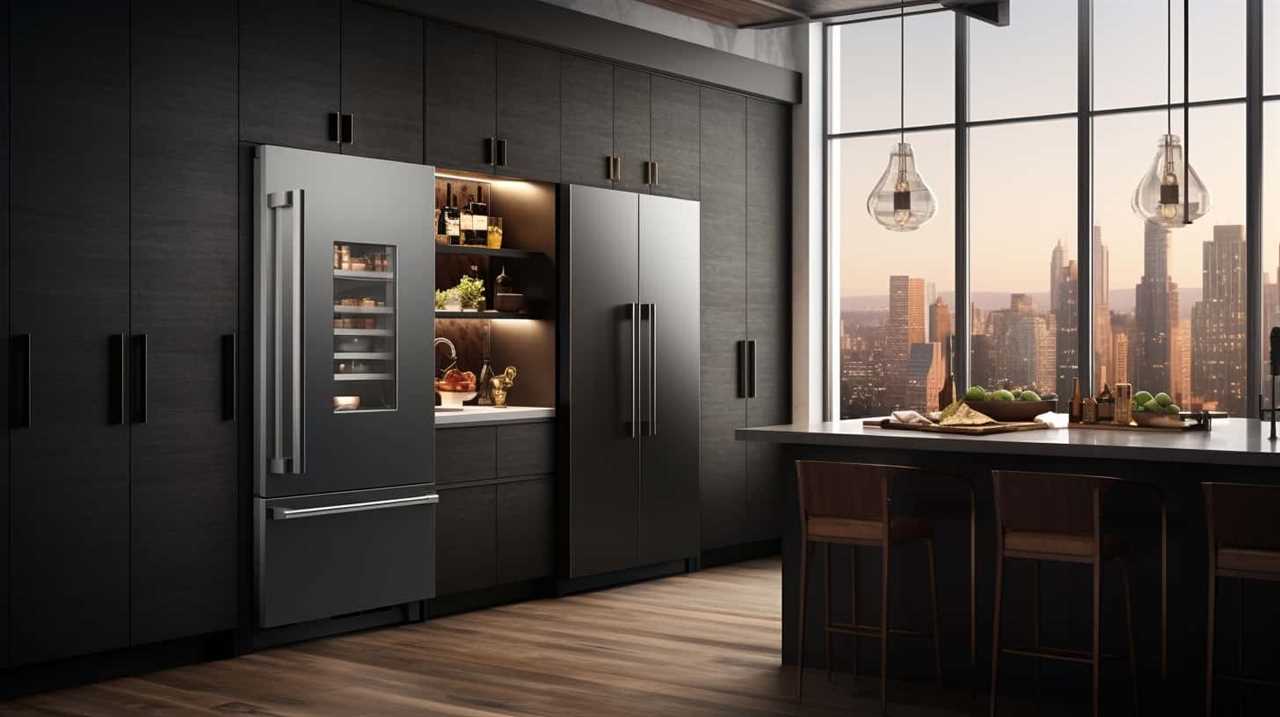
In addition to convenience, smart home integration offers energy-saving benefits. Connected devices can communicate with each other to optimize energy usage. For example, a smart thermostat can adjust the temperature based on occupancy data from other connected devices, resulting in energy savings and lower utility bills.
As the demand for smart home integration continues to grow, appliance retailers are expanding their product offerings to meet consumer needs. From refrigerators with built-in voice assistants to washers and dryers that can be controlled remotely, the options are becoming more diverse and sophisticated.
Sustainable and Energy-Efficient Appliances
As consumers become more aware of the environmental impact of their choices, the demand for eco-friendly and energy-efficient appliances is increasing.
In fact, studies show that a majority of consumers are willing to pay more for appliances that are sustainable and energy-saving.
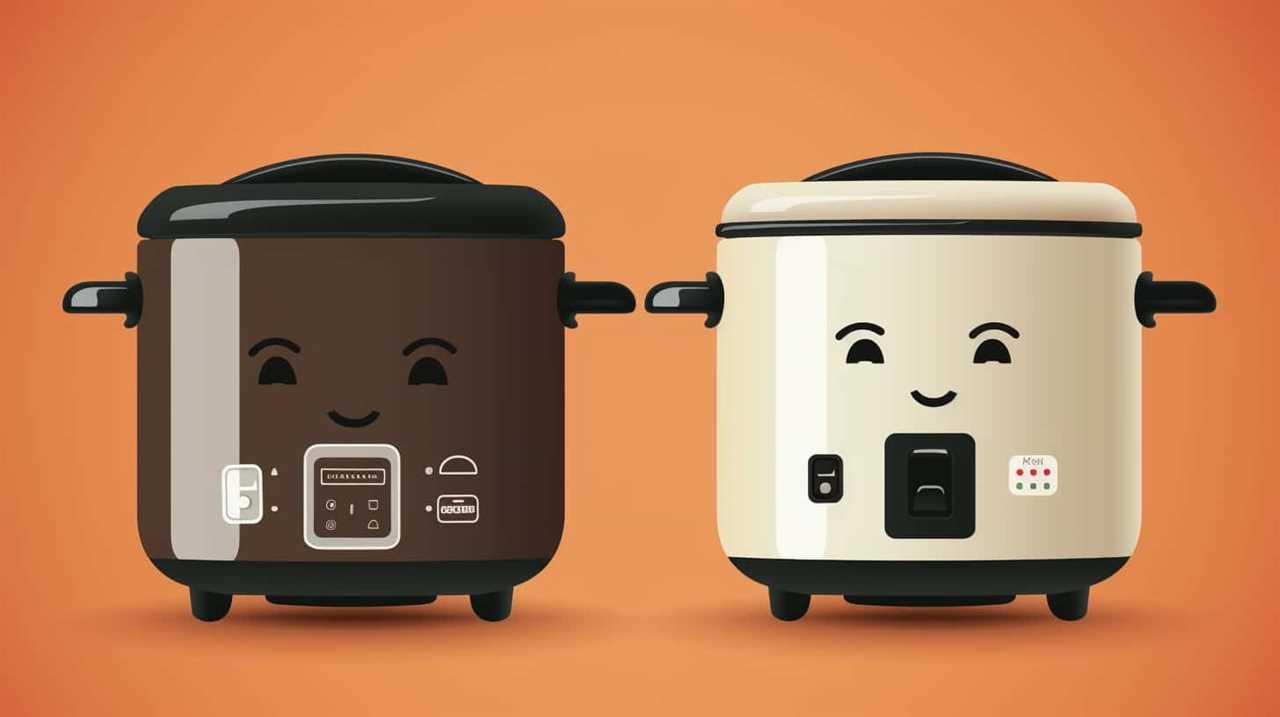
This trend is driven by the desire to reduce energy consumption, lower utility bills, and contribute to a greener future.
Importance of Eco-Friendly
We prioritize eco-friendly appliances for their sustainability and energy efficiency.
In today’s world, where environmental impact is a major concern, consumers are increasingly seeking out eco-friendly options when it comes to their appliances.
These appliances are designed to minimize their negative impact on the environment by reducing energy consumption and utilizing sustainable materials.

According to a study conducted by the U.S. Department of Energy, energy-efficient appliances can significantly reduce greenhouse gas emissions and save consumers money on their utility bills. In fact, replacing old appliances with energy-efficient ones can save an average household up to $500 per year.
Additionally, sustainable appliances are often made from recycled materials or have a high recyclability rate, further reducing their environmental footprint.
Energy-Saving Appliances Demand
Our customers are increasingly demanding energy-saving appliances that are both sustainable and energy-efficient. Consumer behavior has shifted towards a more conscious approach, with individuals recognizing the importance of reducing their carbon footprint and conserving energy.
This growing demand for energy-saving technology is driven by several factors. Firstly, consumers are becoming more aware of the environmental impact of traditional appliances and are actively seeking alternatives that minimize energy consumption. Additionally, rising energy costs have prompted individuals to seek energy-efficient appliances that can help save on utility bills. According to a report by Statista, the global market for energy-efficient appliances is projected to reach $711.3 billion by 2027, indicating the significant growth potential in this sector.
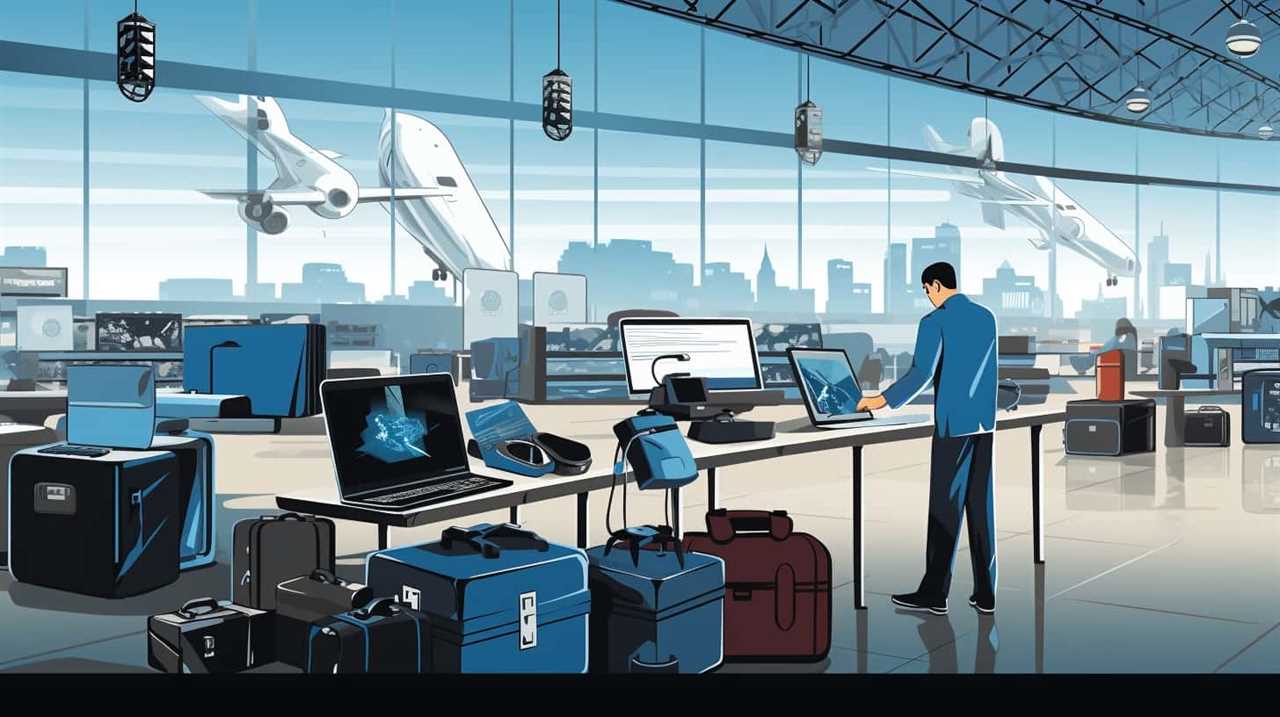
As retailers, it’s crucial to meet this demand by offering a wide range of sustainable and energy-efficient appliances to cater to our customers’ needs.
Personalized Shopping Experiences
When it comes to revolutionizing appliance retail, a key trend that can’t be overlooked is the implementation of personalized shopping experiences.
In today’s digital age, consumers have come to expect tailored recommendations and customized product bundles that cater to their individual needs and preferences. This is where the power of artificial intelligence (AI) comes into play.
By leveraging AI-powered algorithms, retailers can analyze vast amounts of data, such as purchase history, browsing behavior, and demographic information, to provide personalized product recommendations to their customers.
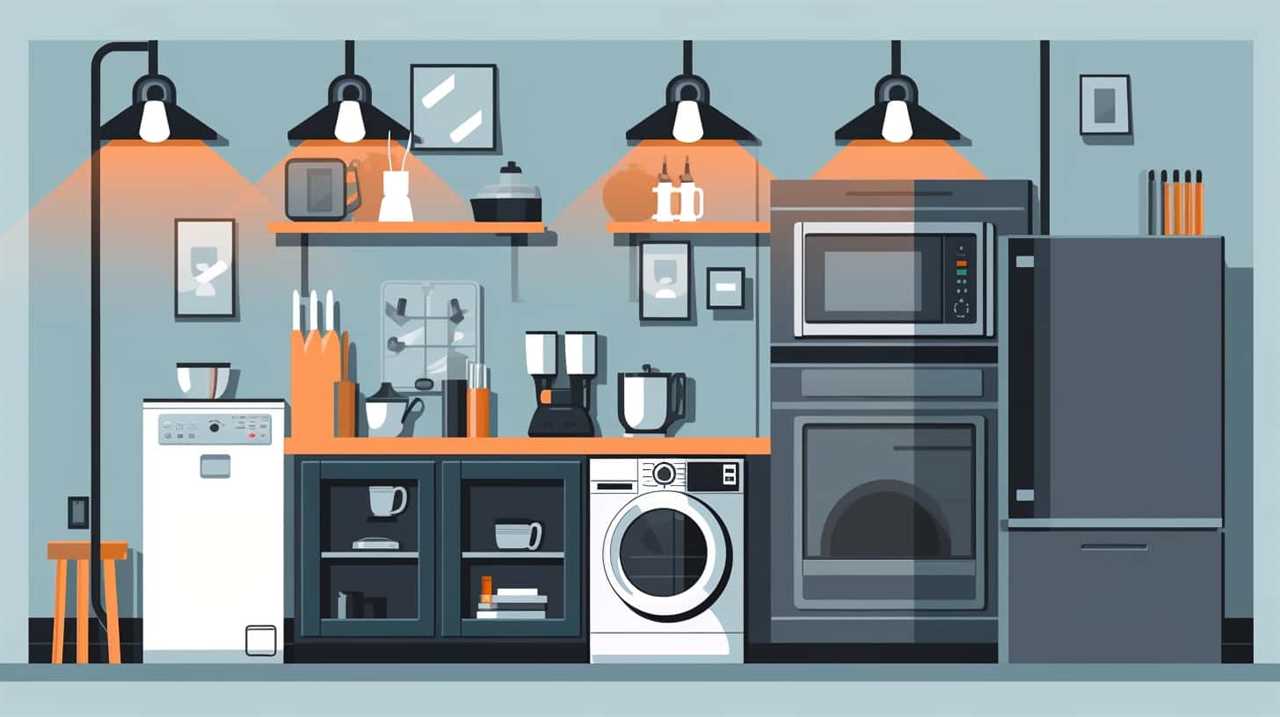
AI-powered recommendations have proven to be highly effective in increasing customer satisfaction and driving sales. According to a study conducted by McKinsey, personalization can lead to a 10-30% increase in revenue for retailers. By understanding each customer’s unique preferences, retailers can offer targeted promotions and discounts, ensuring that the customer feels valued and understood.
In addition to AI-powered recommendations, customized product bundles have also gained popularity in the appliance retail industry. By bundling complementary products together, retailers can offer a more convenient and seamless shopping experience for customers. For example, a retailer can create a custom bundle consisting of a refrigerator, stove, and dishwasher, tailored to a customer’s specific kitchen requirements.
Rise of DTC (Direct-to-Consumer) Brands
The emergence of DTC (Direct-to-Consumer) brands has reshaped the landscape of appliance retail. These brands are revolutionizing the way consumers shop for appliances by cutting out the middleman and selling directly to the consumer. Here are three key reasons why the rise of DTC brands is transforming the online shopping experience:
- Increased convenience: DTC brands allow consumers to shop for appliances from the comfort of their own homes, eliminating the need to visit physical stores. With just a few clicks, consumers can browse through a wide range of products, compare prices, and make a purchase at their convenience.
- Enhanced transparency: Direct-to-consumer marketing provides consumers with greater transparency about the products they’re purchasing. DTC brands often provide detailed product descriptions, customer reviews, and even access to information about the manufacturing process. This transparency helps consumers make more informed decisions and builds trust in the brand.
- Better value for money: By eliminating the middleman, DTC brands can offer appliances at lower prices compared to traditional retailers. This direct-to-consumer model allows brands to pass on the cost savings to consumers, providing them with better value for their money.
As online shopping continues to grow in popularity, DTC brands are poised to reshape the appliance retail industry even further. The convenience, transparency, and value they offer are revolutionizing the online shopping experience, making it easier and more enjoyable for consumers to find and purchase the appliances they need.
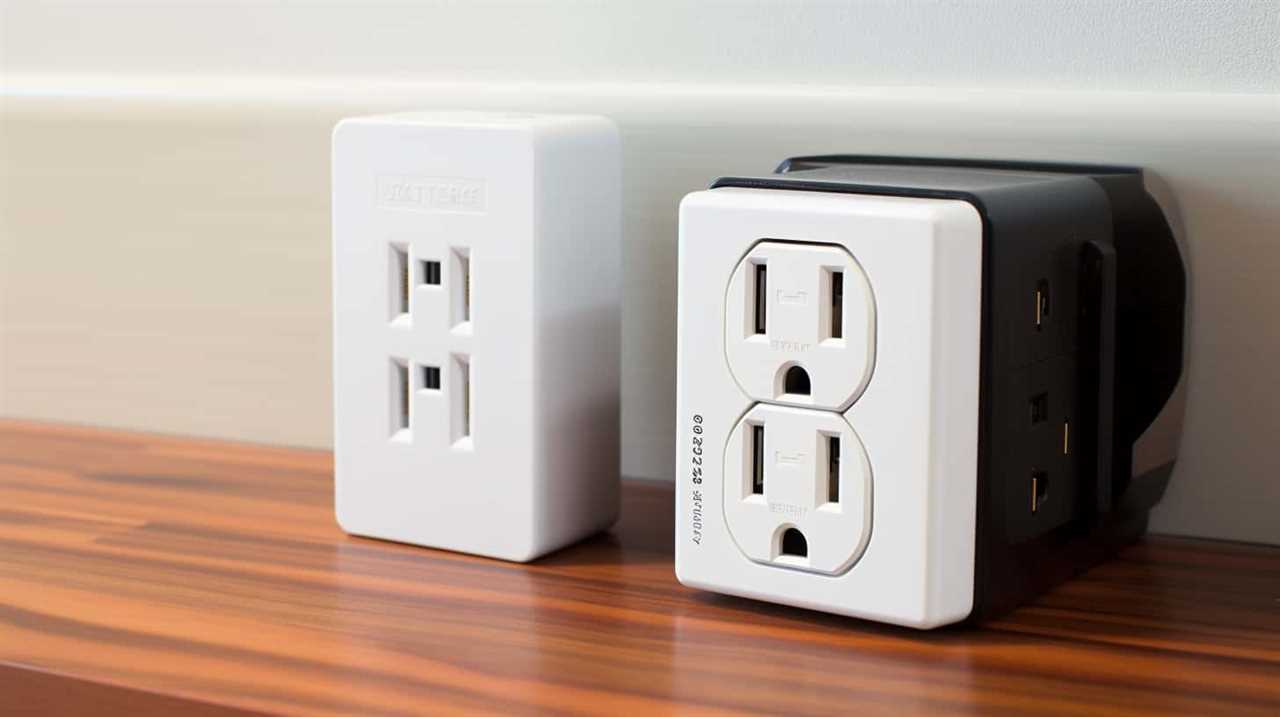
Now, let’s explore another exciting trend in appliance retail: virtual reality.
Virtual Reality in Appliance Retail
Virtual reality is revolutionizing the appliance retail industry by enhancing the shopping experience for consumers. With virtual reality technology, customers can now have interactive product demonstrations right from the comfort of their own homes.
This immersive experience allows them to visualize how appliances will fit into their space and make informed purchasing decisions.
Enhancing Shopping Experience
At our store, we’re revolutionizing the appliance shopping experience by incorporating virtual reality technology. This innovative shopping technology not only enhances the overall customer experience but also provides improved customer service. Here are three ways virtual reality is transforming the way people shop for appliances:

- Immersive Experience: With virtual reality, customers can now step into a virtual showroom and visualize how different appliances will look in their own homes. This creates a more immersive and engaging experience, allowing customers to make informed decisions.
- Customization: Virtual reality enables customers to customize appliances by changing colors, finishes, and configurations in real-time. This level of personalization helps customers find the perfect appliance that fits their unique style and requirements.
- Increased Confidence: Virtual reality eliminates the guesswork and uncertainty associated with purchasing appliances. By experiencing products virtually, customers can have a better understanding of their features and functionality, leading to increased confidence in their decision-making process.
By incorporating virtual reality technology, we’re transforming the way customers shop for appliances, providing them with a more personalized, immersive, and confident shopping experience.
In the next section, we’ll explore another exciting aspect of our revolutionized shopping experience: interactive product demonstrations.
Interactive Product Demonstrations
To further enhance the immersive shopping experience, we offer interactive product demonstrations that utilize virtual reality technology in appliance retail. Our virtual reality demonstrations allow customers to experience our appliances in a whole new way, providing a realistic and interactive preview of how the products will look and function in their own homes.
With augmented reality experiences, customers can virtually place appliances in their desired spaces, allowing them to visualize the perfect fit and design. This technology not only saves time and effort, but also helps customers make more informed purchasing decisions.

By leveraging virtual reality and augmented reality, we’re revolutionizing the way customers shop for appliances, providing them with a truly immersive and engaging experience.
Now, let’s delve into the next exciting trend in appliance retail: subscription-based appliance services.
Subscription-Based Appliance Services
We’re witnessing a growing trend in the appliance retail industry with consumers increasingly opting for subscription-based appliance services. This innovative approach allows customers to have access to the latest appliances without the burden of ownership or the high upfront costs.
Here are three reasons why subscription-based appliance services are gaining popularity:

- Flexibility: With connected appliances becoming more prevalent, consumers want the flexibility to upgrade their appliances as technology advances. Subscription-based services offer the convenience of easily swapping out outdated appliances for newer models, ensuring that customers always have access to the latest features and functionalities.
- Cost-effectiveness: Appliance rentals provide a cost-effective solution for consumers who don’t want to invest a significant amount of money upfront. Instead of purchasing appliances outright, customers can pay a monthly fee, which often includes maintenance and repairs. This model allows individuals and families to enjoy high-quality appliances without breaking the bank.
- Sustainability: Renting appliances promotes sustainability by reducing waste and promoting a circular economy. Instead of disposing of old appliances, subscription services enable the appliances to be reused or refurbished for other customers. This not only reduces landfill waste but also conserves resources by maximizing the lifespan of each appliance.
Frequently Asked Questions
What Are the Benefits of Integrating Smart Home Technology With Household Appliances?
Integrating smart home technology with household appliances offers numerous benefits. By connecting our appliances to the Internet of Things, we can enhance convenience, efficiency, and control.
With smart home integration, we can remotely monitor and control our appliances, receive notifications and alerts, and even automate tasks. This not only saves time and energy but also enables us to optimize our daily routines.
The seamless integration between smart home technology and household appliances revolutionizes the way we interact with and manage our homes.
How Can Sustainable and Energy-Efficient Appliances Help Reduce Carbon Footprint?
Sustainable and energy-efficient appliances are crucial in reducing our carbon footprint. By using these appliances, we can make a significant impact on the environment. They consume less energy, resulting in lower electricity bills and fewer greenhouse gas emissions.
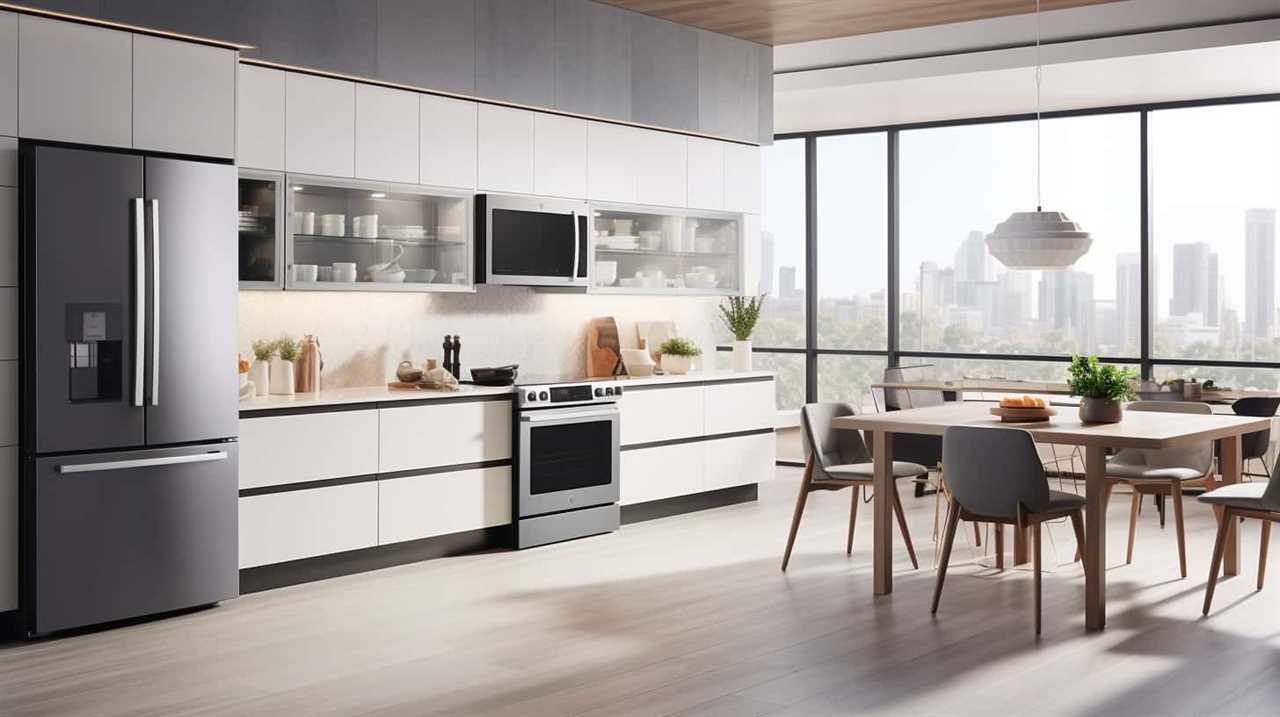
Additionally, sustainable appliances are designed to last longer, reducing waste and the need for constant replacements. Investing in these appliances not only saves money but also contributes to a greener future for generations to come.
As the saying goes, ‘Every little bit helps,’ and choosing sustainable and energy-efficient appliances is a small but impactful step towards a more sustainable lifestyle.
Are Personalized Shopping Experiences Limited to Online Platforms or Can They Also Be Offered in Physical Stores?
Personalized shopping experiences aren’t limited to online platforms; they can also be offered in physical stores. The role of artificial intelligence (AI) in personalized retail is crucial in both online and offline settings.
AI-powered technologies can analyze customer data to provide tailored recommendations and enhance the overall shopping experience. By leveraging AI, physical stores can offer personalized product suggestions, customized promotions, and targeted advertising to meet the specific needs and preferences of their customers.

This integration of AI in offline retail is revolutionizing the way consumers shop and enhancing their overall satisfaction.
What Are Some Advantages of Purchasing Appliances From Direct-To-Consumer Brands?
Purchasing appliances from direct-to-consumer brands offers numerous advantages.
Firstly, it provides access to a wider range of products, allowing us to choose from innovative designs and cutting-edge technology.
Secondly, these brands often offer competitive pricing, ensuring that we get the best value for our money.
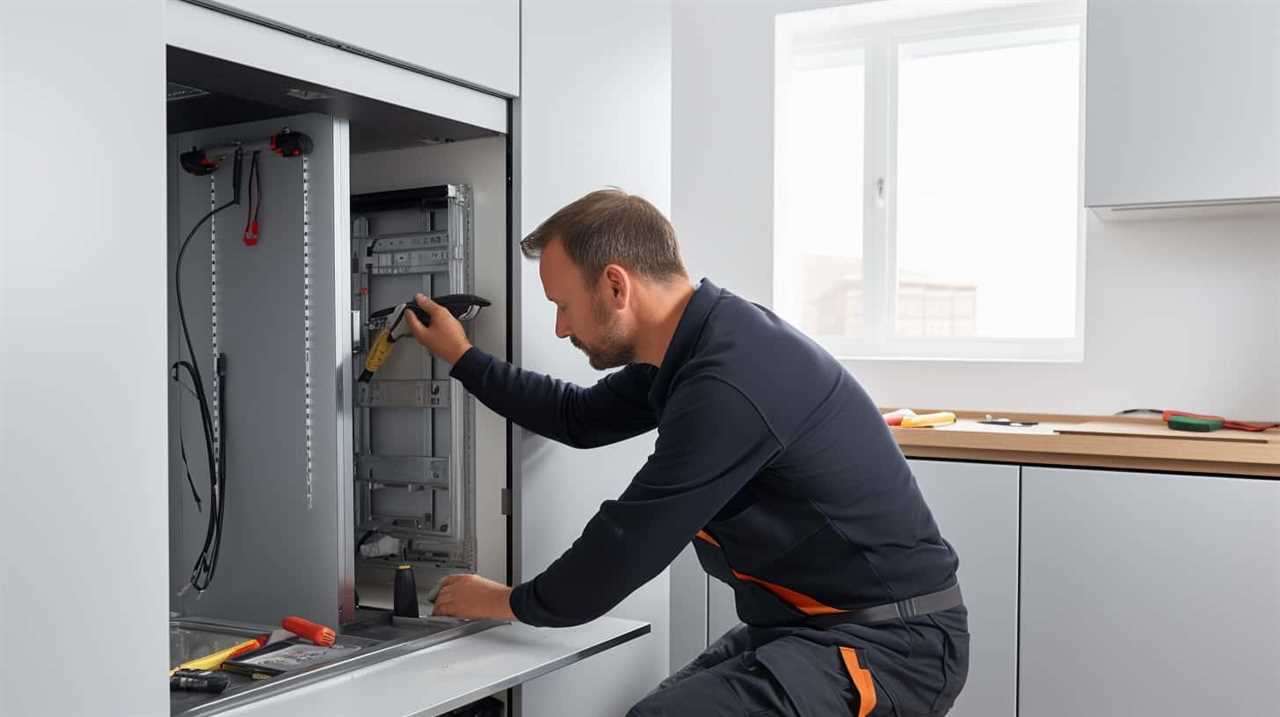
Additionally, direct-to-consumer brands prioritize customer service, offering personalized assistance and hassle-free returns.
Lastly, purchasing from these brands eliminates the middleman, resulting in shorter delivery times and a more streamlined shopping experience.
How Can Virtual Reality Enhance the Appliance Shopping Experience for Consumers?
Enhanced immersion and improved decision making are two key benefits of using virtual reality in the appliance shopping experience.
By immersing consumers in a virtual showroom, they can explore and interact with appliances as if they were physically present. This heightened level of engagement allows for a more realistic evaluation of size, design, and functionality.
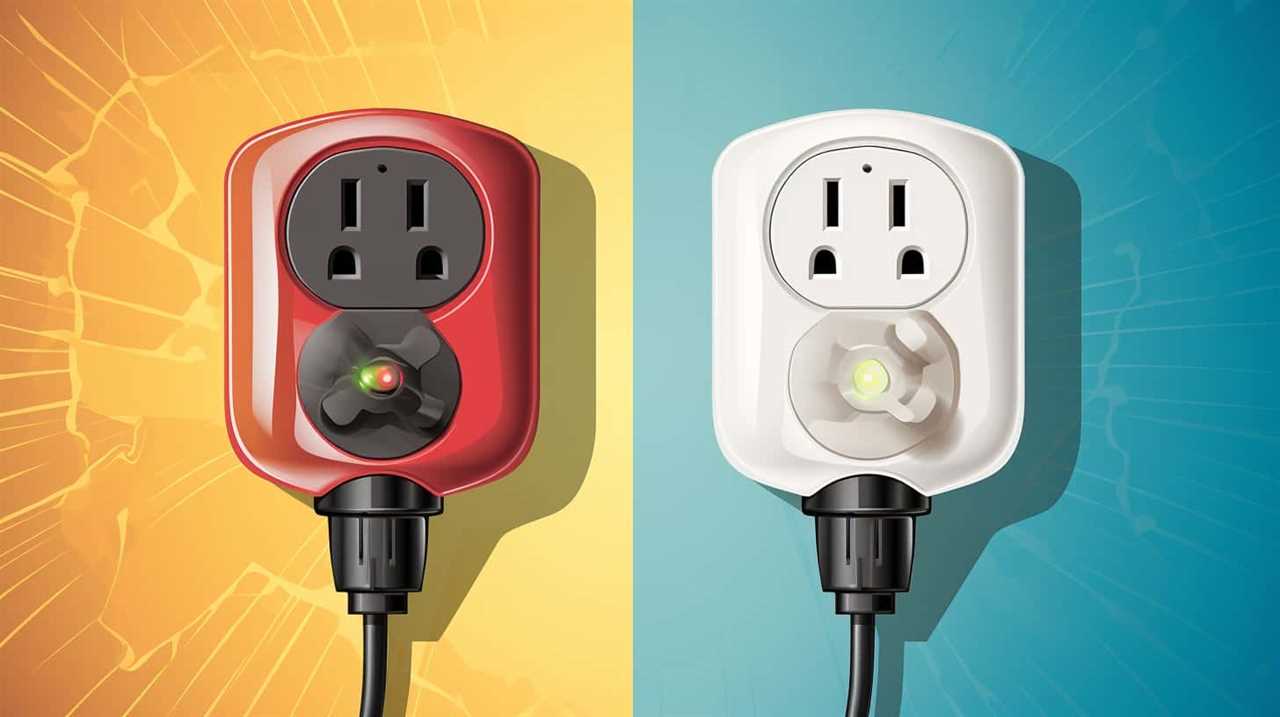
Additionally, virtual reality can provide detailed product information and comparisons, empowering consumers to make well-informed decisions.
Conclusion
In conclusion, the appliance retail industry is undergoing a significant transformation driven by consumer trends.
One interesting statistic to note is that 65% of consumers prioritize sustainable and energy-efficient appliances when making a purchase. This highlights the growing importance of environmental consciousness in the buying decisions of consumers.
As technology continues to advance and consumer preferences evolve, retailers must adapt and innovate to meet the demands of the modern consumer.










